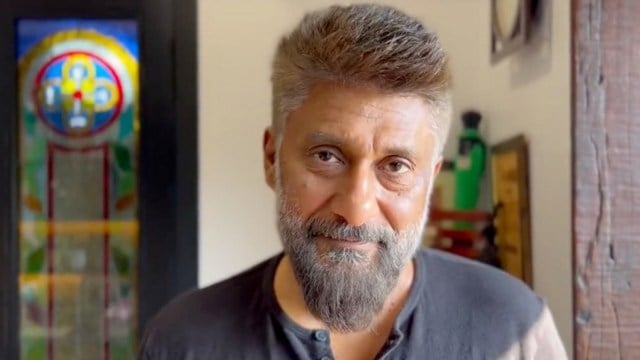📣 For more lifestyle news, click here to join our WhatsApp Channel and also follow us on Instagram
Filmmaker Vivek Agnihotri shares 20-year struggle with acidity: ‘Mutton, chicken chode kaafi time hogaya’
"Anything that comes out of Earth, I eat that," added The Kashmir Files director
 Vivek Agnihotri shares what he is eating these days (Photo: Vivek Agnihotri/Instagram)
Vivek Agnihotri shares what he is eating these days (Photo: Vivek Agnihotri/Instagram)The Kashmir Files filmmaker Vivek Agnihotri recently opened up about his dietary choices and experiencing 2-3 health issues, including acidity. “I eat plant-based food. I don’t eat non-vegetarian food anymore. I used to eat non-vegetarian food almost every day. But now, I don’t. I have not been having it for many years now. I used to eat fish for protein for some time. But now, I don’t. Mutton, chicken chode kaafi time hogaya. (It’s been a long time since I left mutton, chicken),” Agnihotri told Curly Tales.
According to him, there is science behind the switch. “The latest medical science is all about lifestyle medicine, which indicates that all diseases have a single source, which is food. There are 3-4 rules (that I follow). Anything that comes out of Earth, I eat that. Anything that doesn’t have a face and a mother, I don’t eat — like fish. Anything advertised on television, I don’t eat. Anything healthy is not advertised, like banana or real milk, unlike packaged milk,” he added.
He further shared that he “had 2-3 problems that were not getting resolved”. “For 20 years I had acidity, jo gayab hi hogayi jaise ki kabhi thi hi nahi life me. (It got resolved as if it wasn’t there in the first place). Then mental fog gets resolved,” said Agnihotri, adding that he used to drink a lot of beer, which he has “given up as well”.
 What does your diet include? (Photo: Freepik)
What does your diet include? (Photo: Freepik)
Taking a cue from his admission, we turned to Kanikka Malhotra, consultant dietician and diabetes educator, to understand the benefits of such a diet.
Malhotra said that the adoption of a plant-based diet is something many Indians can relate to, especially given our traditional preference for vegetarian meals. “His approach of choosing foods that come directly from nature and steering clear of heavily processed or advertised items mirrors age-old Indian advice to ‘eat what your grandmother recognised as food’. It’s no surprise he noticed relief from acidity, a complaint almost every Indian has faced after heavy, oily, or spicy meals. By cutting out non-vegetarian foods and alcohol, he reduced common triggers for acidity and digestive discomfort,” said Malhotra.
According to the dietitian, many people find that plant-based foods, rich in fibre and gentle on the stomach, lead to fewer gastric issues and even clearer thinking. “Still, a pure vegetarian diet needs to be balanced, including dals, nuts, seeds, and possibly B12 supplements to fill nutrition gaps. Listening to your body, just like Vivek did, and regular checkups ensure lasting health benefits,” said Malhotra.
Making lifestyle changes such as eating simple, home-cooked food—especially without heavy spices—can greatly help manage acidity and keep blood sugar under control, shared Malhotra.
“Traditional Indian remedies emphasise foods like buttermilk, curd, bananas, and fresh, seasonal vegetables, all of which are easy on the stomach and support good digestion. Reducing or avoiding spicy, oily, and processed foods, as well as sugary beverages and alcohol, can prevent heartburn and help maintain stable blood sugar. Ingredients like ginger, cumin, fennel, and tulsi promote digestion and soothe the digestive tract,” said Malhotra.
Steamed, lightly seasoned recipes using millets, dals, and fresh greens keep meals nutritious and gentle. “Adding more fibre and eating smaller, regular meals helps control both acidity and glucose levels, supporting overall health,” said Malhotra.
DISCLAIMER: This article is based on information from the public domain and/or the experts we spoke to. Always consult your health practitioner before starting any routine.
📣 For more lifestyle news, click here to join our WhatsApp Channel and also follow us on Instagram





- 01
- 02
- 03
- 04
- 05






















